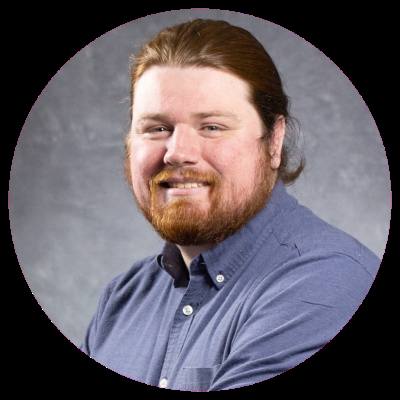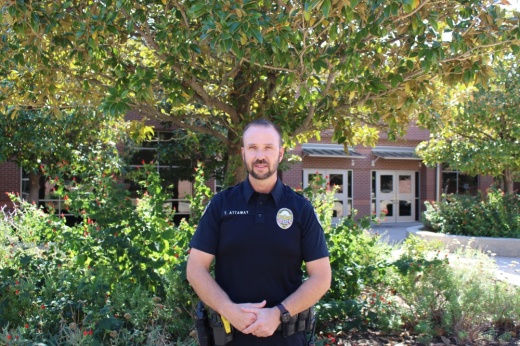What is a school resource officer?
Essentially a school resource officer [is] a police officer that’s assigned to work primarily in the schools. Our major duties are going to be protecting students and staff. We operate under the National Association of School Resource Officers. They are a triad concept: so it goes teacher, counselor and then law enforcement officer. Essentially what that means is that we can serve in all of those roles. One moment we may be teaching an antidrug and alcohol class in the classroom. We may counsel students in an informal way; of course, we’re not certified counselors or anything like that. And then there are other times that we’re serving [in] a law enforcement role. Our day really truly varies from day to day. One minute, we can be high five-ing, and the next minute we could be in the classroom.
How long have you worked with Frisco ISD as a school resource officer?
I’ve been doing this for about 18 years now. Our SRO unit retention rate is pretty high. A lot of officers, even though they may leave the unit, they actually come back. There’s a big sense of accomplishment in what we do. We have a pretty positive influence on kids and the outcome of the future. I think that’s pretty important.
What motivated or inspired you to take on this role?
I think when I was a young police officer, I always thought I wanted to be a detective. After talking to a lot of detectives, I didn’t get a real warm and fuzzy feeling for their job. I happened to run into a school resource officer one day, and he just randomly started telling me about his job and how amazing his job was, and that he had the best job in the police department. I thought, ‘You know what, that’s what I want to do.’ And that’s not a knock on detectives. I mean, detectives have a lot of paperwork and a lot of things that go on behind the scenes to get the job done.
How long have you worked as a Frisco police officer? What other positions have you worked in at the Frisco PD?
I started [in] law enforcement in 1996 in California. [I] ended up coming here in 2002 to [the] Frisco [Police Department]. I’ve been here over 20 years. I’ve been a patrol officer, a bike patrol officer, [and an officer] on the crisis negotiation team, which is kind of the modern term for hostage negotiator. So I got the experience to do a lot of different things.
What are your top priorities as a school resource officer?
My top priorities are to provide a safe environment for the students to learn where they feel comfortable [and] to be able to make a positive impact on them. Just basically be able to share some of my experiences so that maybe you can make some changes in their life.
What is your favorite part of being a school resource officer?
I think my favorite part is just seeing kids grow up and be successful; go on to chase their own dreams and goals; [go to] college; and things like that. I think especially when you know a kid’s struggle at some point or you’ve had frequent interaction with a kid you know that it’s just exciting to see them grow up and go on to do good things in the world.
What do you feel is the most challenging aspect of being a school resource officer?
I think one of the most challenging things is overcoming barriers that students or parents might have regarding law enforcement officers and trying to break down some of those barriers, like the stigmas that they attach to police officers. Whether it’s through previous family interactions or interactions we’ve had in other cities, ... we’re just everyday people like they are. I think trying to build that rapport sometimes with those students or parents that have had those negative interactions [is challenging.]





